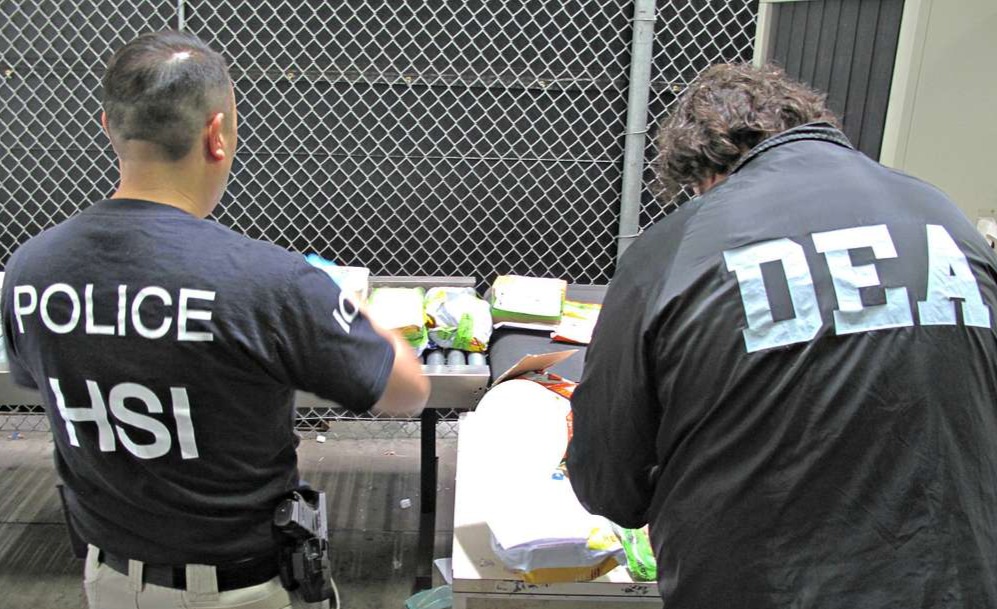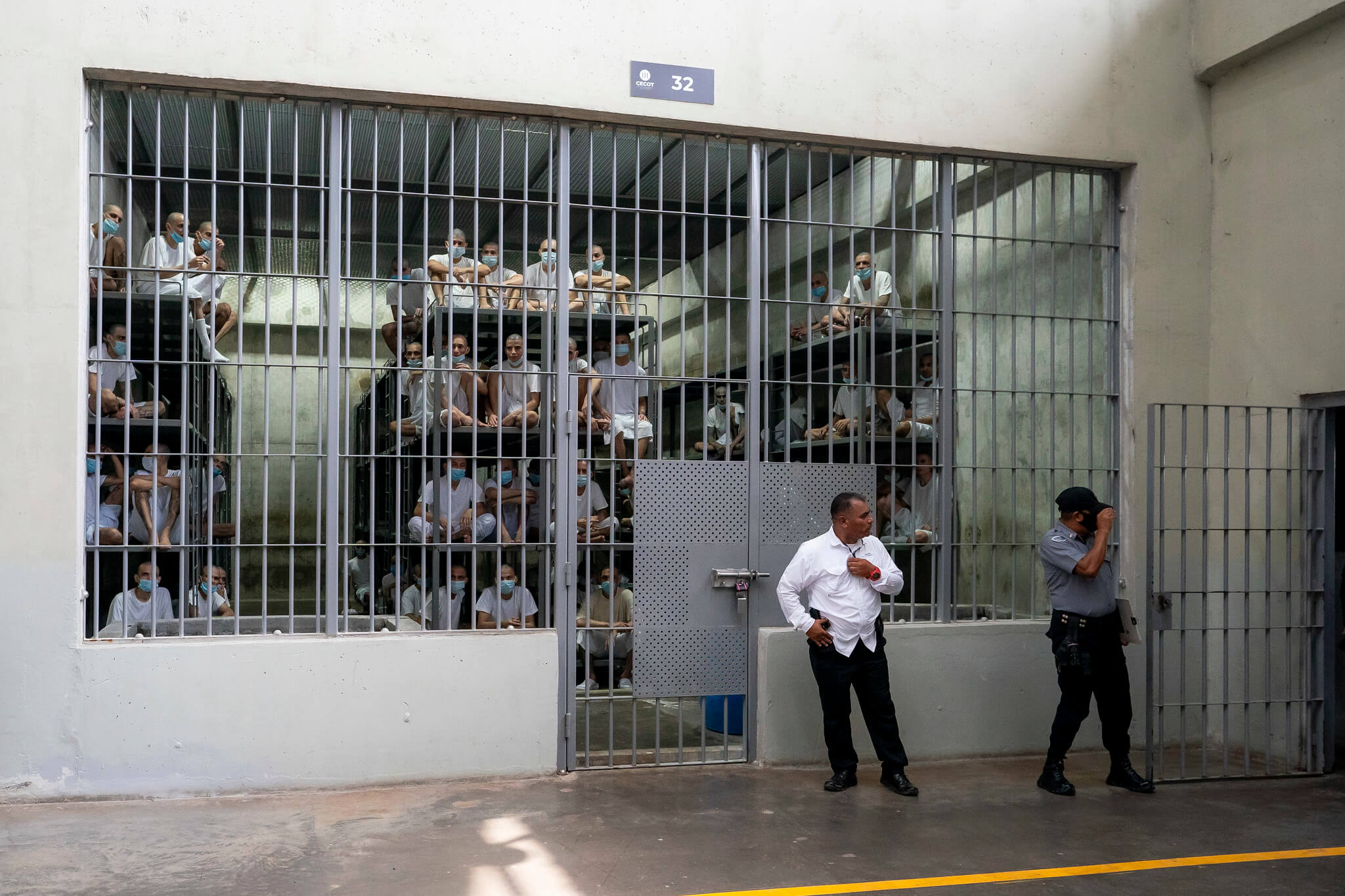Today's Headlines and Commentary
The New York Times At War blog has this fascinating post about how the U.S. was supplying Libya with arms during the pre-Qaddafi years of the Cold War. The post, written by C.J. Chivers and John Ismay, includes a photo of a storage tube with a logo of the precursor to USAID that was meant for holding and disseminating white phosphorous mortars discovered in 2011 during the fall of the Qaddafi regime.
The New York Times At War blog has this fascinating post about how the U.S. was supplying Libya with arms during the pre-Qaddafi years of the Cold War. The post, written by C.J. Chivers and John Ismay, includes a photo of a storage tube with a logo of the precursor to USAID that was meant for holding and disseminating white phosphorous mortars discovered in 2011 during the fall of the Qaddafi regime. The authors write on the significance of this find:
[T]he sticker had been affixed to a storage tube for an 81-millimeter white-phosphorous mortar round with a point-detonating fuze. The tube, with many others, was found by a reporter for The New York Times in an abandoned government munitions depot that in the summer of 2011 had fallen under the control of anti-Qaddafi fighters. It had been packed, according to the yellow stenciling on its side, in November 1944 — late in World War II, as the United States contemplated the invasion of Japan. Wooden crates containing rifle and machine-gun ammunition, seen below, bore that same label, suggesting an acknowledged state-to-state transfer of ammunition in an aid program.Earlier this week, Tom Bowman at NPR reported on All Things Considered on U.S. efforts to combat corruption in Afghanistan, including a task force called Illicit Activities Initiative for Afghanistan. NPR's Larry Abramson has this Morning Edition report on the growing concerns over civilian use of drones, while Jamie Holmes at Slate makes the case for creating awards for drone pilots. She summarizes her argument by saying:
They will help retain the meaning of existing medals, award those who perform their duties exceptionally, and, perhaps most importantly, could also help address, rather than exacerbate, a popular concern: that drones diminish accountability. Don’t we want drone pilots to be aware of their great responsibilities and to be rewarded for exercising them honorably? The proposed Distinguished Warfare Medal makes sense because it recognizes that drone pilots are engaged in deadly serious warfare. In a context where sparing civilian lives should be of the utmost importance, formalities that set apart flying a drone from playing a video game should be welcomed, not castigated.Scott Shane writes in the New York Times that the investigation into recent national security leaks has resulted in no good stories on national security issues. Guess that's what happens when there are no officials willing to leak classified information to reporters. Shane says that the investigation appears to be the "most sweeping inquiry into intelligence disclosures in years." But not all members of Congress agree with that approach: Senator McCain is complaining alongside his friend Senator Lindsey Graham that the DOJ probe doesn't have the proper focus, and that it should be focusing on the "top of the intelligence chain." The AP tells us that Jordanian police arrested 13 Jordanian men who they believe are a part of "terror cell" but haven't elaborated on what that means, exactly. The leaders of the Senate Armed Forces, Foreign Relations, and Intelligence committees are trying their hardest to bless the agreement between the U.S. and Afghanistan, with a resolution in support of it introduced this week in the chamber, reports Carlo Munoz in The Hill. Congressman Ed Markey has introduced a bill aimed at protecting privacy rights from drone surveillance. Read more about the bill in the Huffington Post or from Brendan Sasso at The Hill. Did you honestly think I could get through a news roundup today of all days without mentioning cybersecurity legislation? Deputy Secretary of Defense Ashton Carter and Deputy Secretary of Homeland Security Jane Holl Lute advocate for the Cybersecurity Act of 2012 in the New York Times. John Brennan and General Martin Dempsey are also joining the chorus advocating for passage of a bill, Jennifer Martinez of The Hill informs us. Martinez, however, is not optimistic about the likelihood of a successful cloture motion on the cybersecurity bill. Such a vote would end debate on the bill and proceed to a consideration of amendments and (ideally) a vote on passage. For more interesting law and security-related articles, follow us on Twitter, visit the Georgetown Center on National Security and the Law’s Security Law Brief, Fordham Law’s Center on National Security’s Morning Brief, and Fordham Law’s Cyber Brief. Email us noteworthy articles we may have missed at wakeman.lawfare@gmail.com and singh.lawfare@gmail.com.
Raffaela Wakeman is a Senior Director at In-Q-Tel. She started her career at the Brookings Institution, where she spent five years conducting research on national security, election reform, and Congress. During this time she was also the Associate Editor of Lawfare. From there, Raffaela practiced law at the U.S. Department of Defense for four years, advising her clients on privacy and surveillance law, cybersecurity, and foreign liaison relationships. She departed DoD in 2019 to join the Majority Staff of the House Permanent Select Committee on Intelligence, where she oversaw the Intelligence Community’s science and technology portfolios, cybersecurity, and surveillance activities. She left HPSCI in May 2021 to join IQT.
Raffaela received her BS and MS in Political Science from the Massachusetts Institute of Technology in 2009 and her law degree from Georgetown University Law Center in 2015, where she was recognized for her commitment to public service with the Joyce Chiang Memorial Award. While at the Department of Defense, she was the inaugural recipient of the Office of the Director of National Intelligence’s General Counsel Award for exhibiting the highest standards of leadership, professional conduct, and integrity.





